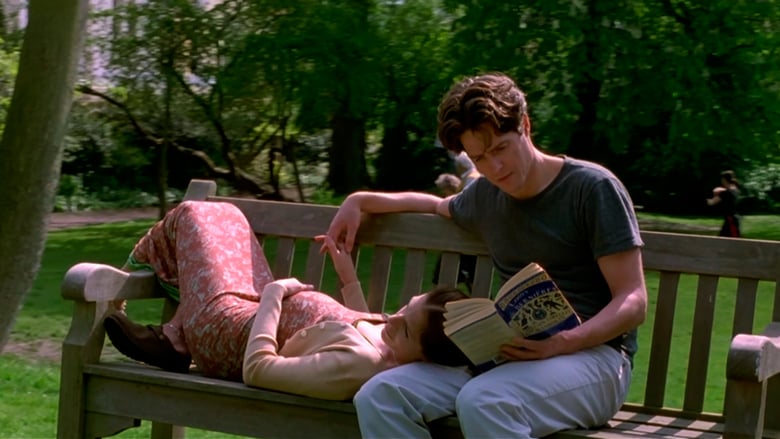
Roger Michell’s Notting Hill (1999) is the ultimate homage to Julia Roberts. In the nineties Julia Roberts was the pinnacle of the Hollywood leading lady and Notting Hill plays with her image and fame in some very humorous ways while never really losing sight of that. It’s a film that’s willing to be reflexive without ever indulging in any “non-commercial” formal exercises. So though never really brilliant cinematically, Notting Hill is never the less important as a document of celebrity in the nineties.
The problem with Notting Hill is that the male protagonist Will (Hugh Grant) takes the moral high ground in his relationship with Anna Scott (Julia Roberts) at the expense of any empathetic gesture or understanding. The narrative as a whole follows suit, invalidating the perspective and experience of Anna Scott, culminating in her own admission that her emotional experience, as well as her reaction to that experience, is fundamentally wrong. One sees this initial conflict in the scene outside Will’s blue door where the couple faces the press and its resolution in the scene where Anna returns to Will’s bookshop to apologize.
Richard Curtis’ career is replete with such instances. Women at first glance seem essential to the romantic comedies penned by Curtis but are in actuality fluid totems of male desire. Not one character in Notting Hill refers to Anna as anything resembling a human being, preferring adjectives such as “goddess” as if to reiterate the hyperbolic language of commercial movie reviewers and further commodifying Anna in the process. It isn’t until the climax of the film that Anna is discussed as just a woman and even then it’s her scene, her dialogue, that recategorizes her. But it isn’t necessarily a healthy re-categorization since the word Curtis has chosen for Anna to speak has her referring to herself as a “girl” in a way that infantilizes her.
Curtis’ casually misogynistic writing still goes largely unnoticed. Notting Hill is nowhere near as bad as Love Actually (2003) in this regard. For this viewer it proved difficult to enjoy the charms of Notting Hill as an adult with Curtis’ unfortunate proclivities as a screenwriter always getting in the way.
